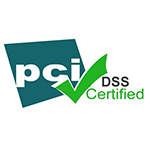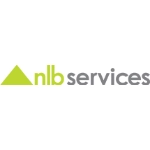© 2025 Next Level Business Services Inc. All Rights Reserved.
IT vs Non-IT Recruitment: Key Differences and Best Practices
By NLB Services
Recruitment has evolved tremendously over the past few years. Recruiters are now leveraging new technologies and channels to hire and retain the best talent in the market. For IT and Non-IT domains, recruiters must adapt and strategize unique ways and approaches in order to onboard the right talent for their organizations.
For a recruiter, it is crucial to understand the difference between these two types of recruitment as candidates and recruitment styles are different. Amid the dynamic and highly competitive job market, organizations must adopt new talent acquisition technologies and focus more on the right recruitment strategies to gain the upper hand in hiring top candidates. In this blog, we will understand IT and Non-IT recruitment in detail, the key differences between the two, and the main challenges faced by recruiters in these hiring types.
Defining IT Recruitment
IT recruitment or recruiting for technical skills is solely focused on recognizing potential individuals who possess profound technical skills matching or preferably exceeding the requirements of the job role. It involves software development, cybersecurity, data analytics, cloud architecture, cloud computing, software architecture, etc.
IT recruitment is challenging and daunting due to common obstacles such as talent shortage, ever-changing technology, cultural mismatch, skill inadequacy, etc.
For an IT recruiter, having some level of technical expertise is critical It facilitates accurate assessment of technical skills, allows effective screening by parsing relevant keywords in the resume and bringing up the right questions about the skill levels, shortening the hiring time.
Apart from this, a recruiter who is proficient in technical skills will be in a better position to identify the potential of a technical candidate and communicate the job-specific requirements.
Defining Non-IT Recruitment
Non-IT recruitment, on the other hand, caters to a broader spectrum of audiences and different industries such as finance, healthcare, marketing, and more. Technical recruitment requires technical knowledge to assess the candidates, while non-technical recruitment focuses on industry-specific qualifications, experience, and competencies.
This emphasizes soft skills, and industry-specific knowledge at the time of hiring. It also tends to have a larger pool of candidates as compared to IT recruitment. To hire for any non-IT roles, recruiters should focus on understanding the diverse skills needed for the job. It includes fluent communication, a problem-solving attitude, leadership skills, promptness, and industry-aligned experience.
Key Differences Between IT and Non-IT Recruitment
For effective IT and non-IT recruitment, it is crucial to understand the recruitment process differences between these two areas. Here are the major differences:
Skill set Requirements
In IT recruitment, technical skills are of prominent importance such as programming languages, system architectures, and software proficiency. Certifications like AWS and Microsoft Azure play a key role in candidate evaluation. Whereas, in non-IT recruitment, soft skills, communication proficiency, emotional intelligence, and problem-solving with relevant industry experience.
Recruitment Process
Recruitment processes vary across IT and non-IT domains. In IT recruitment, the interview process usually involves technical assessment, coding tests, and problem-solving for the evaluation of hard skills. In non-IT recruitment, questions are mainly focused on behavioral competency, situational judgment, and case studies to assess candidates’ soft skills, adaptability, and industry knowledge.
Sourcing Channels
IT recruitment focuses on avenues like online coding communities and technical job boards and hackathons to source technical talent. For non-IT roles, candidates can be sourced from a broader range of platforms like job boards, industry-specific networks and platforms, and networking sites.
Salary and Compensation
Competitive salaries are often offered in IT roles owing to the high demand for niche technical skills. Sometimes, compensation packages also include unique benefits such as certifications, training, and options for remote work. Compensation structure in non-IT recruitment varies broadly on industry, position, and location and usually considers many factors. Packages may include flexible work arrangements, development opportunities on the professional front, health insurance, travel allowance, etc.
Challenges in IT and Non-IT Recruitment
Both recruitment types have their own unique set of challenges that recruiters face throughout the process of recruitment.
Challenges in IT Recruitment
Talent Scarcity
There is a dearth of complete skills when it comes to IT talent acquisition, rapid technological advancements and evolution have made it challenging for candidates who are up-to-date and proficient in all the latest skills.
Technical Assessments
Though there are technical assessments that can help evaluate the candidate’s tech skills, however, they can be very limited in the concept and can fail to judge the practical experience of the candidate.
Competition
Multiple offers from different companies and counteroffers often keep the demand high and high salary expectations often strain recruitment budgets. This makes it very challenging for recruiters to offer a compelling offer to the candidate and close the deal.
Non-IT Recruitment Challenges
Finding Cultural Fit
Recruiters have to scrutinize an ideal candidate who fits a diverse team. Recruiters need to find a candidate who can align with the company’s values and culture.
Assessing Industry-Specific Knowledge
Unlike technical skills that can be tested, expertise in industry specifics is broader and requires recruiters to put some thought into gauging it in the candidate.
High Turnover
For some non-IT roles, there are higher turnover rates that organizations face due to which recruiters need to repeatedly go through the whole process quite often, adding to their burden. Many joiners fail to adapt to the company’s culture and do not continue the role. Nearly 38% of people quit within the first year at a job as per hubstaff.
Conclusion and Best Practices for Recruiters
When it comes to IT vs Non-IT recruitment, adopting a strategic approach can ease the hiring hassles for recruiters and drastically improve the hiring process for the candidates. In this blog, we discussed key differences between IT and non-IT recruitment and the challenges that recruiters face in both types of recruitment. Here are some of the recruitment best practices that recruiters can follow:
Best practices for IT recruitment
Stay up-to-date with the industry trends
New updates come daily in the technology world, IT recruiters should stay updated with the in-demand skills and certificates and what is going on in the industry to be in a better position for recruiting the best talent.
Leverage Specialized Job Platforms
Many candidates for IT use different platforms that you can leverage like GitHub, Slack, Overflow, and Angellist to identify the talent and source them directly from the community.
Competitive compensation offering
Competitive salary and compensation package is one of the highly influential factors for onboarding a great talent. Sure, you can not exceed the company budget, but keep tracking the industry standard for particular roles and candidates with specific experience. This also helps retain the top talent in a highly competitive market.
Best Practices for Non-IT Recruitment
Focus on soft skills and diversity
As a recruiter for non-IT job postings, focus on behavioral interviews and scenario-based questions to judge candidates’ abilities and cultural alignment.
Broaden Your Talent Pipeline
Look for talent from diverse backgrounds, industries, experiences, and platforms to make sure that you have a rich pool of skilled candidates.
Leverage AI and data-driven tools
Technology can be your best friend if you know how to leverage it, use AI-powered recruitment platforms such as Harver and Pymetrics to streamline the hiring process and make better information-backed decisions.
Emphasize Growth
Non-IT candidates prefer organizations that offer genuine growth opportunities. Highlight long-term career growth potential and opportunities for growth within the organizations to attract top talent. As per Forbes’s recent study, sharing genuine opportunities for growth cam majority impact the candidate’s decision in finalizing the company.
As a recruiter, it is always a challenge to attract and onboard the best talent in the market, whether you are an IT recruiter, or non-IT recruiter, or a company looking for IT recruitment solutions. This blog will surely help you understand what IT and non-IT recruitment are, what are the key differences and what the challenges are in each recruitment type. Read more about recruitment trends that are prevailing in the tech recruitment arena here. Want to level up your recruitment game? Contact us to learn how we can help streamline your recruitment process.
Talent Solutions








